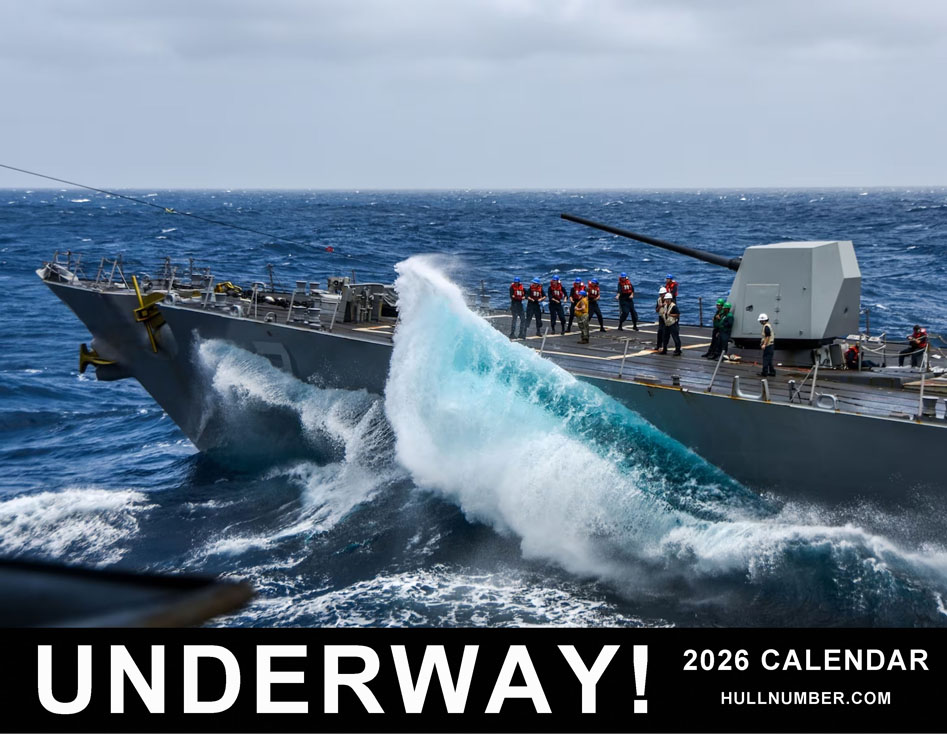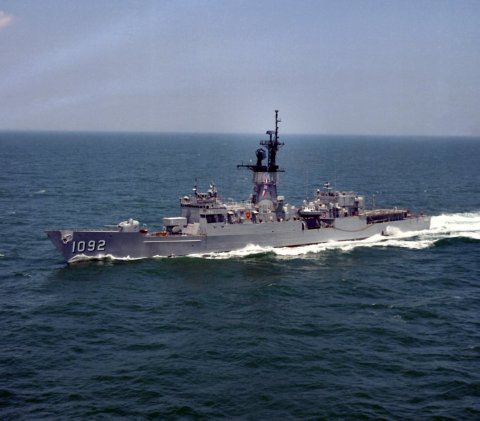 |
|||||||
| UNDERWAY! 2026 WALL CALENDAR is AVAILABLE - CLICK HERE |
|||||||
 |
|||||||
 |


U.S.S. THOMAS C. HART
(FF-1092)YA GOTTA HAVE HART
Click to view crew list
USS THOMAS C. HART (FF-1092) - a Knox-class frigate
In Commission 1973 to 1993FF-1092 Deployments - Major Events
| Add a FF-1092 Shellback Initiation | Add a FF-1092 Deployment - Major Event | ||||
| Month | Year | to | Month | Year | Deployment / Event |
|---|---|---|---|---|---|
| OCT | 1971 | - | Keel Date: 8 OCT 1971 at Avondale Shipyard Inc. Westwego LA | ||
| AUG | 1972 | - | Launch Date: 12 AUG 1972 | ||
| JUL | 1973 | - | Commissioned: 28 JUL 1973 | ||
| JUN | 1975 | - | DEC | 1975 | England Norway Mediterranean |
| JUL | 1976 | - | NOV | 1976 | UNITAS |
| AUG | 1976 | - | Shellback Initiation - 1 AUG 1976 - Atlantic Ocean | ||
| SEP | 1977 | - | APR | 1978 | Mediterranean |
| JUN | 1983 | - | SEP | 1983 | suez canal |
| AUG | 1983 | - | Shellback Initiation - 29 AUG 1983 - Indian Ocean | ||
| MAR | 1984 | - | APR | 1984 | Blue Nose - Arctic Circle |
| JUN | 1986 | - | NOV | 1986 | Mediterranean |
| FEB | 1988 | - | AUG | 1988 | Mediterranean |
| FEB | 1988 | - | AUG | 1988 | Mediterranean |
| AUG | 1990 | - | MAR | 1991 | Desert Shield |
| AUG | 1993 | - | Decommissioned: 30 AUG 1993 | ||
FF-1092 General Specifications
Class: Knox-class frigate
Complement: 18 Officers and 267 Enlisted
Displacement: 3201 tons
Length: 438 feet
Beam: 46 feet 9 inches
Draft: 24 feet 9 in
Final Disposition: Disposed of through the Security Assistance Program (SAP) transferred to Turkey
USS THOMAS C. HART (FF-1092)
Thomas C. Hart (DE-1092) was laid down on 8 October 1971 at Westwego, La., by Avondale
Shipyards, Inc.; launched on 12 August 1972; sponsored by Mrs. Reginald
Bragonier, eldest granddaughter of Admiral Thomas
C. Hart; and commissioned on 28 July 1973, Lt. Comdr. Ronald J. Forst in command.
The last combatant ship
commissioned at the Boston Naval
Shipyard, Thomas C, Hart conducted sea trials off the east coast
before being homeported in Norfolk, Va.
Following shakedown at Guantanamo Bay, Cuba, she returned to the Norfolk
Naval Shipyard on 1 February 1974, where she underwent a major structural
conversion, altering her after superstructure to accommodate the new Light Airborne Multi-purpose System (LAMPS) facilities. She then steamed out for post-repair trials off the Virginia Capes.
Deploying to the
Caribbean, Thomas C. Hart conducted
weapons systems tests and antisubmarine exercises and, upon completion of these duties, called at Port-au-Prince, Haiti, before returning to
Guantanamo Bay for further training.
After naval gunfire support qualification
at Roosevelt Roads, she cruised to Bermuda
for a three-day visit. She left Port Royal Bay on 3 September, having to do a "quick step"
to avoid the tropical storm which
later became Hurricane Delores, and arrived at Norfolk on 5 September.
In October, following type
training in the Narragansett Bay area, the ship qualified for a certificate for unrestricted operations.
With
Capt. W. R. Smedburg IV, Commander, Destroyer Squadron 10, and his staff embarked, Thomas
C.
Hart got
underway on 18 November for Composite Task Unit Exercise 4-75 and nine days of intensive
exercises. The following month, the ship passed her Nuclear Weapons Acceptance
Inspection on 11 December and thus became a nuclear-qualified ship.
The early months of 1975 were spent in preparation for Thomas C. Hart's first
Mediterranean deployment. This deployment, which lasted from 16 June to 22 December, consisted
primarily of operations with John F.Kennedy (CV-67) and other escorts while making a number of
port visits in company with Pharris (FF-1094). On 1 July 1975, the ship was reclassified as
FF-1092., Thomas
C. Hart spent the first six months
of 1976 engaging in two major fleet
exercises in preparation for her four
and one-half month, unsupported participation in Unitas XVII later in the year.
The first exercise,
"Safepass," lasted from 6 to 26 March and involved complex NATO fleet operations out of Halifax, Nova
Scotia. The second exercise, "Solid Shield," occurred during the period 13 to 18 May and involved
operations off the coast of the
Carolinas in support of a full amphibious
landing on Onslow Beach. Following an intensive month-long preparation period in June, Thomas C. Hart commenced
Unitas XVII on 9 July. During the next
18 weeks, the ship circumnavigated the South American continent and operated with host ships from Brazil, Uruguay, Argentina, Chile, Peru, Colombia,
and Venezuela. The frigate returned
to her home port of Norfolk on 21
November and spent the remainder of the year in post-deployment standdown and
holiday leave period.
Early
1977 found Thomas C. Hart experiencing a period of maintenance, alteration, and testing. Of most significance was the
installation of the Harpoon system, a highly sophisticated surface warfare missile which greatly extended Thomas
C. Hart's reach against surface contacts. Most of September was spent in
Norfolk preparing for the ship's second Mediterranean deployment. She departed
CONUS on 27 September and engaged in seven months of operations with the 6th Fleet
before returning to Norfolk again on 26 April 1978. Ports of call included Rota, Spain;
Alexandria, Egypt;
Istanbul, Turkey; Piraeus, Greece; Venice, Gaeta, and Naples, Italy; and-finally-Majorca;
Valencia, and Rota, Spain.
Following
post-deployment standdown, Thomas C. Hart engaged in CORTRAMID 78, an underway training period for
midshipmen, which lasted from mid-June through early July. In late September 1978, Thomas
C. Hart's home port was shifted to Philadelphia in anticipation of the commencement
of her first regular overhaul since commissioning. Thomas C. Hart entered
the Philadelphia
Naval Shipyard for this purpose on 26 October, and she remained there into 1979.
[Note: The above USS THOMAS C. HART (FF-1092) history may, or may not, contain text provided by crew members of the USS THOMAS C. HART (FF-1092), or by other non-crew members, and text from the Dictionary of American Naval Fighting Ships]